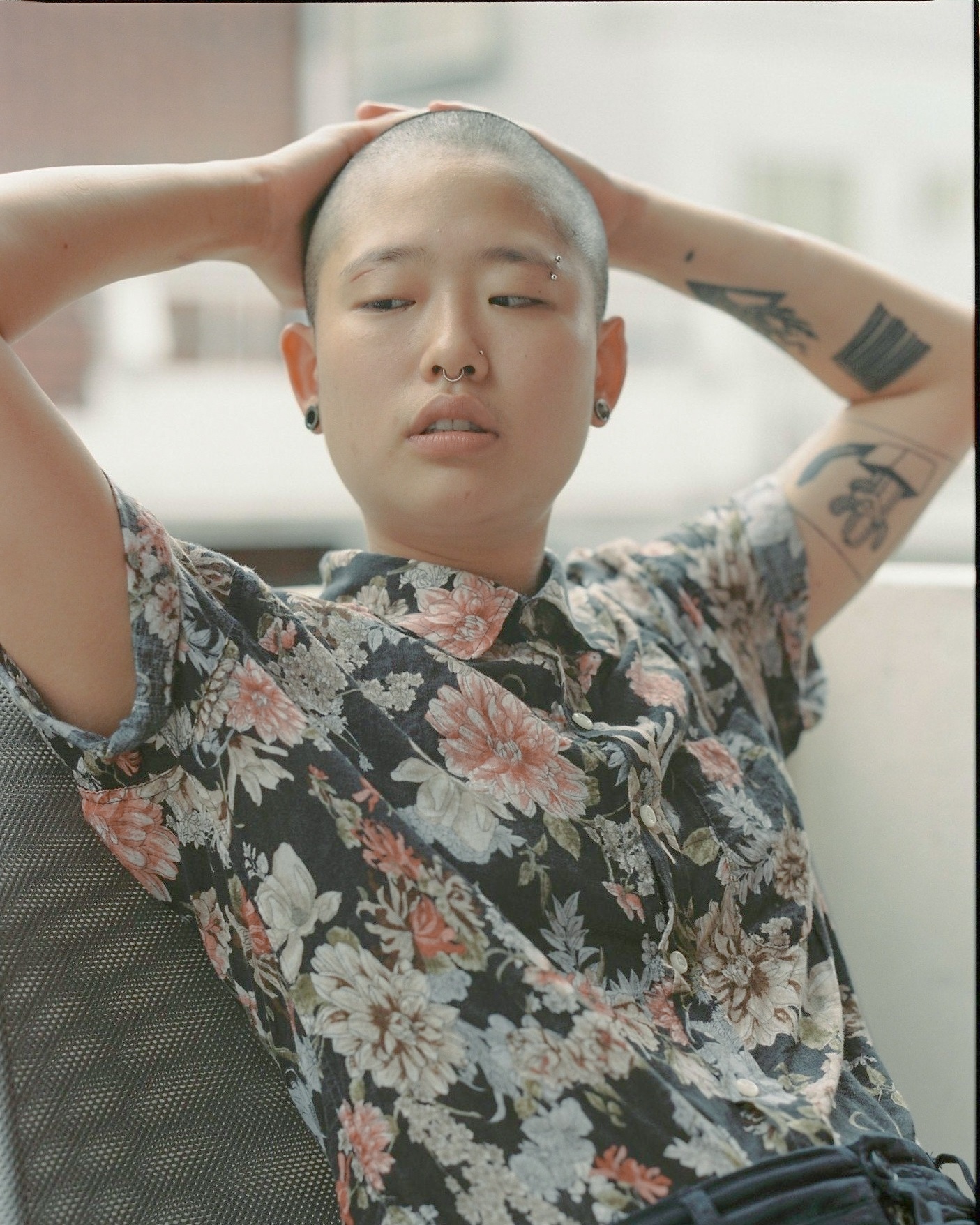Ahrom Choi, 25
What do you do?
Head chef at Southside Parlor
What is it like to be part of the queer community in Seoul?
The community here is very small so everyone knows each other, like family.
What are the challenges you face?
I identify as genderqueer and non-binary. Being born and raised in Korea, androgyny means you do not belong to either two genders. So it is wrong. When I was in school I couldn’t get along with females and males at all. I especially hated to wear uniforms. A simple way to explain is, when I go to a public bathroom I get called out that this is a women’s bathroom.
What’s great about being young in Seoul?
Once you know who you are, know how to express yourself, and have good friends you can just express everything, anywhere.
Where do you go for fun?
I usually go to Itaewon area. Cakeshop every weekend. Pistil. Soap. “Homo Hill” area.
How do you express yourself?
I just show myself being who I am, anywhere.
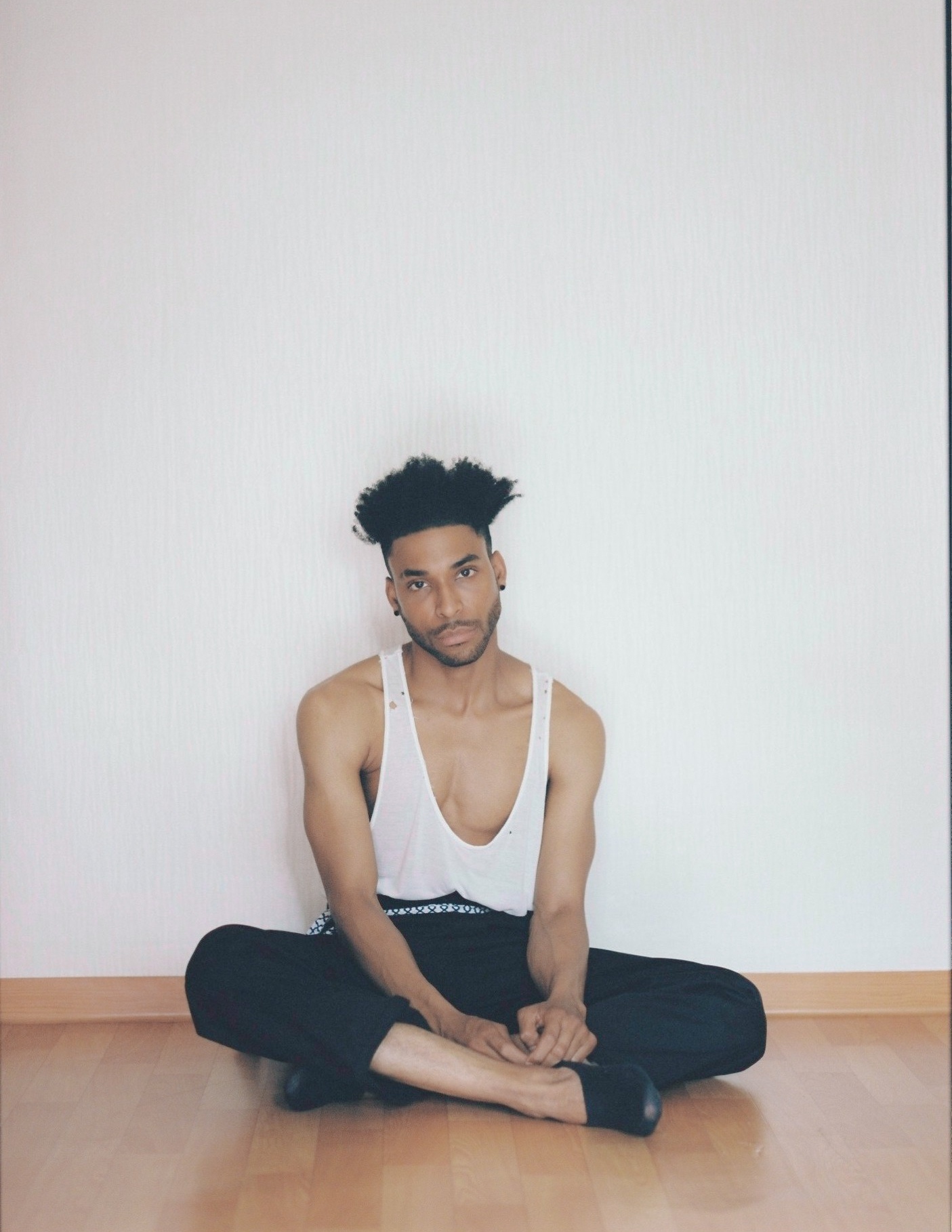
Naquan, 28
What do you do?
Model, dancer.
Tell your coming out story:
One of the first people I ever came out to was my grandfather. I was 18 and had just finished my first year in college. I had spent the year living as an openly gay man and couldn’t reconcile coming home and still being closeted. Both of my parents struggled with drug addiction when I was younger, so since I was five my grandparents raised me.
The day I came out, we were in the waiting room of his doctor’s office. His health had been declining over the past year and I knew that I didn’t have much time left with him. I couldn’t imagine losing him having hidden such a huge part of myself hidden for so long. I took a deep breath and said, “Grandpa, I’m gay.” He didn’t say anything right away and I wasn’t sure if he had heard me so I said it again, louder. Without looking at me, he said, “So what?” He’s a man of few words but I think he could tell by how I was looking at him that I was looking for his approval. So I asked him, “Do you think it’s okay?” Finally he turned to me said, “Do you pay your own bills?” “Yes, I do.” “And does you being gay, stop ME from paying bills?” Half laughing at this point I said, “No, it doesn’t”. Then without blinking he said something I’ll never forget: “Okay, then be gay. But if you’re waiting around asking for permission to be you, you’re only giving other people permission to say no.” That was the last time we spoke about it and that was one of the last times I asked for permission to be myself.
What is it like to be part of the queer community in Seoul?
Coming from the New York queer community, which feels almost limitless, to the small (but emerging) scene here in Seoul was really jarring at first. You really do get to know everyone. It’s interesting being part of a close-knit community, because there really is a sense of being part of a family that supports each other. As opposed to being back home, where you’re surrounded by queers as far as the eye can see, and you still feel kind of detached and alone.
What’s great about being young in Seoul?
There is a real pulse building in Seoul, especially in the queer community. The first Seoul Pride Parade I attended a couple years ago, there were just a couple hundred people, maybe. But last year’s pride was over 50,000 people. It’s crazy to see the progress being made by the queer community. It’s amazing to see the emergence of a vogue scene here and even the drag culture building up as well. It’s crazy because I would have never guessed when I was in middle school sneaking off to New York City to vogue, that something that seemed so obscene at the time would make its way all the Seoul and really pop off.
Where do you go for fun?
As far as nightlife goes, I like going out in Itaewon. I find it to be the most diverse area of Seoul and it feels international. Unsurprisingly, it’s also where the gay area is located. There are a lot of cool places but my favorite club is probably Cakeshop. While isn’t a gay club, they throw some really cool parties like Shade and Femme that are really inclusive and non-binary.
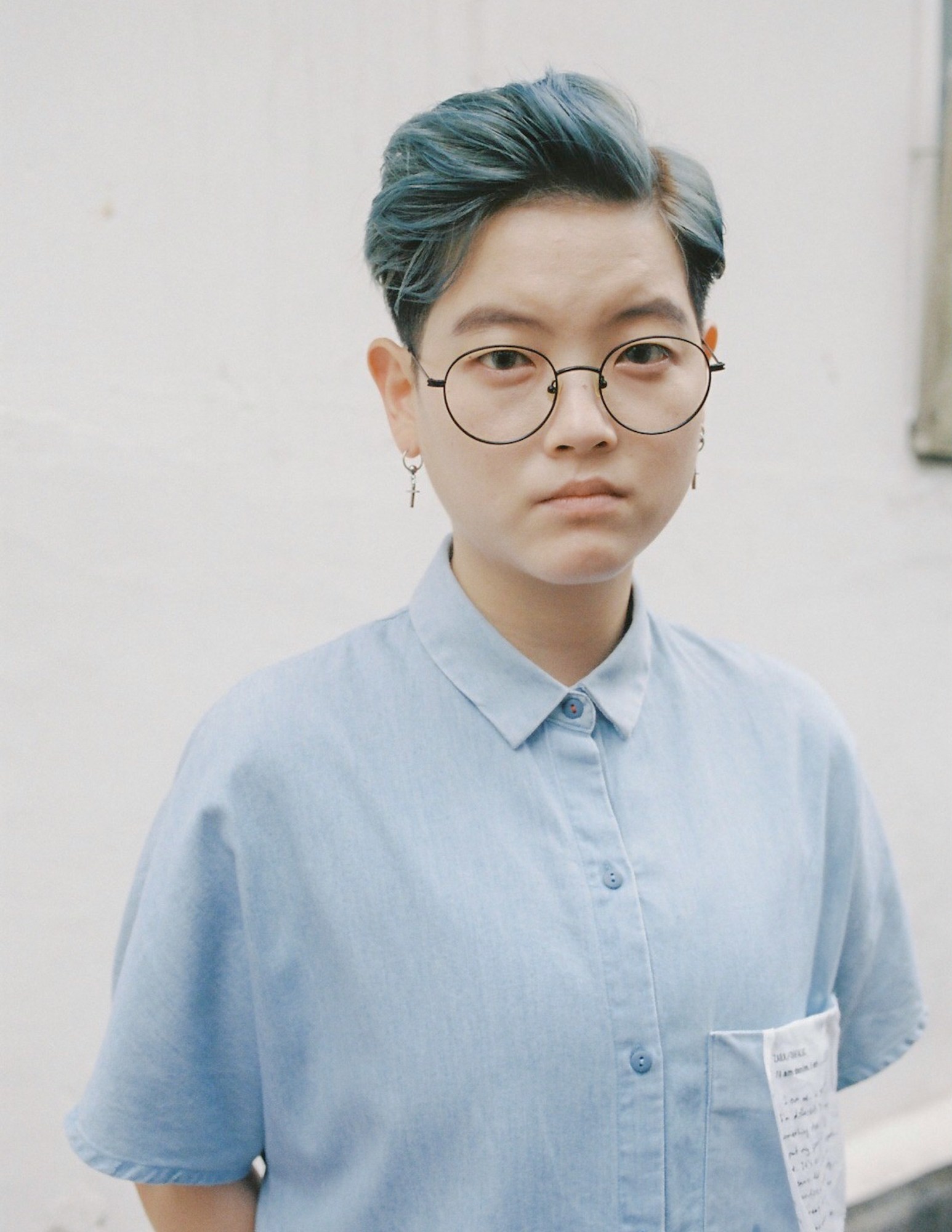
Hayden Royalty, 27
What do you do?
Native English teacher, YouTube personality.
Tell your coming out story:
I came out to my father back in Christmas of 2012. I came out after a series of events that led me to feel that I wanted to be honest to my parents and I felt that we deserved to have a close relationship like any other ‘American’ family. As an American-born Korean person, I thought this was something that my family should be able to have as well.
All in all, things didn’t work out and my father went from being neutral and willing to listen to what I had to say to not accepting that I liked women, and later, aggressive. He said things like: “Have you ever dated a guy?”;”You can’t be like that because no one in our family is”; “Maybe, we (parents) weren’t involved in your childhood as much”; “Maybe we let you be a tomboy and play with your male cousins [too much]”; “I will work until I die to support you in whatever you want to do (career-wise), if you don’t live that [queer] life or be single”; “Think of your sisters – they won’t be able to get married to decent families. No decent person would want to marry someone who has a gay sibling.” Later my parents were keeping tabs on me every hour of the day by calling me 20 times, making sure I was a few minutes away from home, and invading my privacy. After being in such a toxic environment, I packed my bags and left for Seoul. I haven’t really spoken to my father since coming out.
What is it like to be part of the queer community in Seoul?
The queer community in Seoul is underground and thriving. There are events happening every weekend for everyone, gay cismen, queer womxn, and queer people. Sometimes I think that the night life for queer womxn is more thriving here in Seoul than back at home in California.
Politically, Seoul still has a long way to go, in terms of fighting to form anti-discrimination laws for LGBTQIA, same-sex marriage rights, LGBTQIA- inclusive sex education for youth, showing positive visibility of LGBTQIA people in spaces and media, and getting rid of anti-gay military laws. What’s great about being a part of a community that wants to create change is that there’s so much potential and so much support within the community.
What are the challenges you face?
The challenges I face are related to my gender identity. I get misgendered quite a lot and identified by others in ways that I don’t identify with. I go by gender-neutral pronouns of they/them/their and I am pretty out and vocal about myself being genderqueer. But I find myself in spaces that are supposed to be safe spaces, that later turn out to be a bit less safe.
What’s great about being young in Seoul?
Being young in Seoul is liberating. I’m not from Seoul and I don’t have my family in Seoul, so I feel like most of the things I do are for myself. When I first came to Seoul and knew no one, I felt like I was able to explore and find myself. I finally got to do and try things because I wanted to.
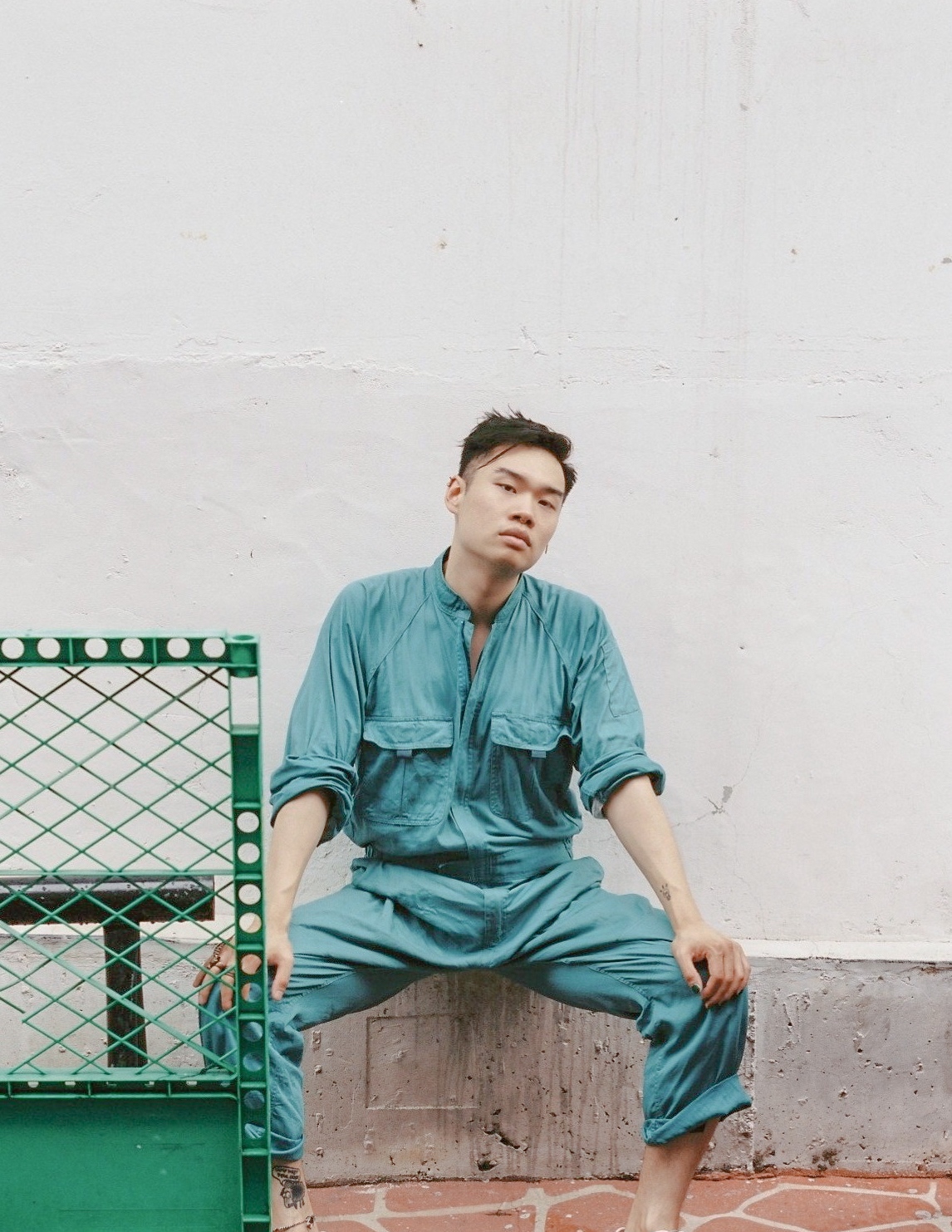
Marshall Bang aka MRSHLL, 21+
What do you do?
Singer, musician.
Tell your coming out story:
I publicly came out a couple years ago in an interview with an online magazine, though I came out to my closest family and friends a year prior to that. I grew up in a fairly typical Korean-American family near Anaheim, California. My parents raised me and my brothers in the conservative evangelical Korean Christian culture full of church camps, retreats, mission trips, Vacation Bible School, and contemporary Christian music. I wrestled with “same sex attraction” for most of my childhood and adulthood until I finally mentioned being attracted to dudes to a group of close friends while attending a conservative Christian college. I couldn’t even bring myself to say that I was gay until years later after going through a myriad of life-changing experiences that helped me grow and mature into being more bold and open about living my truth.
What is it like being part of the queer community?
I would’ve never imagined I’d be living here let alone pursuing what I love to do AND do it as an out and proud gay person of color! The Korean queer community is just as multi-colored, multi-layered, and complex as any queer community you’d find elsewhere in the world. It’s amazing to be part of such a vibrant group of people living their truth and expressing it in such fearless, exciting ways.
What’s great about being young in Seoul?
I feel like we’re in the midst of an exciting time in Korean history. Many of us “gyopos” – ethnic Koreans who were born and raised abroad – are moving to the motherland for a variety of reasons; more and more non-Koreans are discovering and learning more about Korean culture through its music, TV shows, films, etc; there’s an energy here that is palpable, especially among us millennials. We’re bringing new ideas, collaborating with various Koreans of all backgrounds, we’re more open-minded and progressive than our parents.
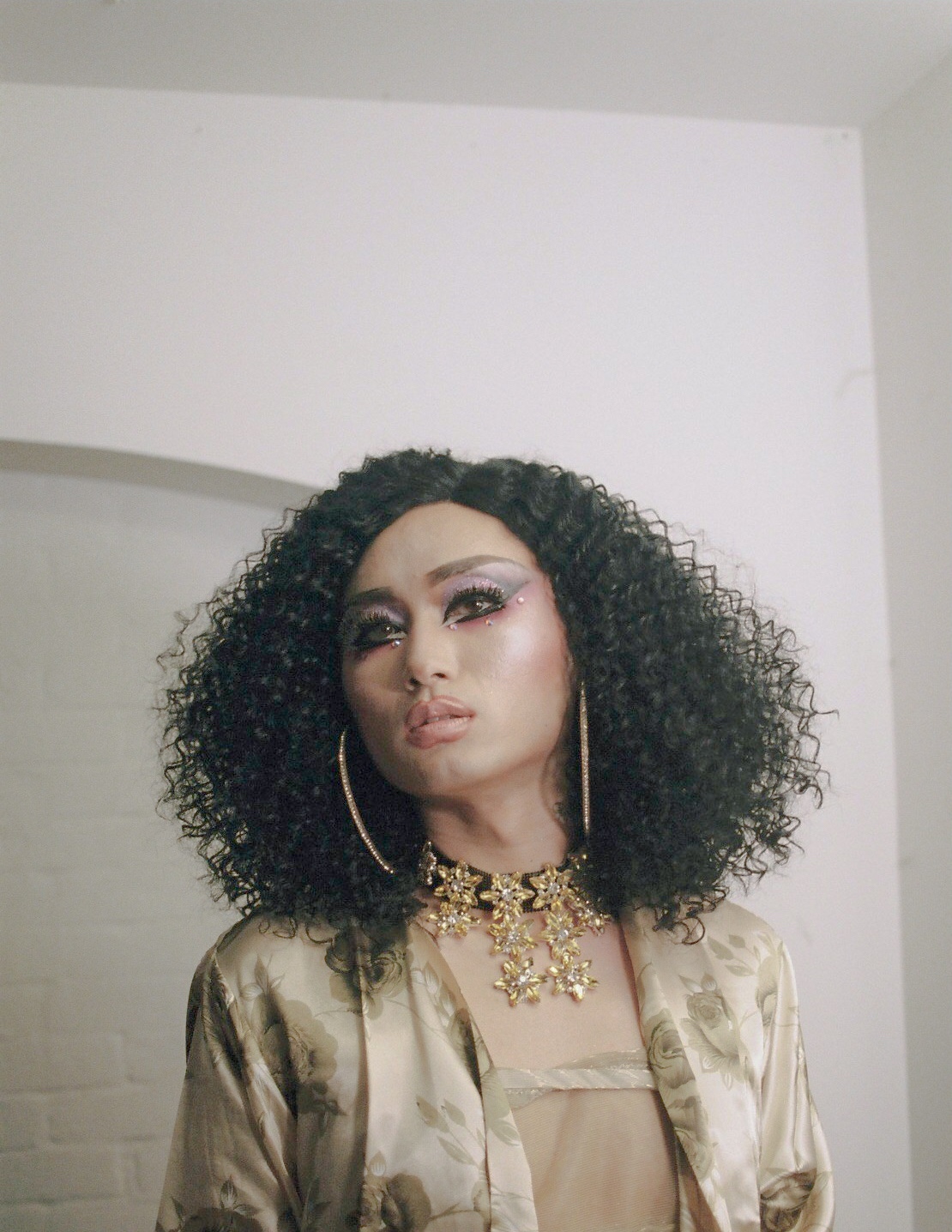
Kuciia Diamant, 27
What do you do?
Drag Queen.
Tell your coming out story:
I told my mom a few weeks ago. My mom was shocked but she said, “You are still my son and I love you” so, we are trying to understand each other.
What is it like being part of the queer community?
It’s very important. We are getting bigger and growing more recognized.
What are the challenges you face?
I don’t have any problems.
How do you express yourself?
On the stage.
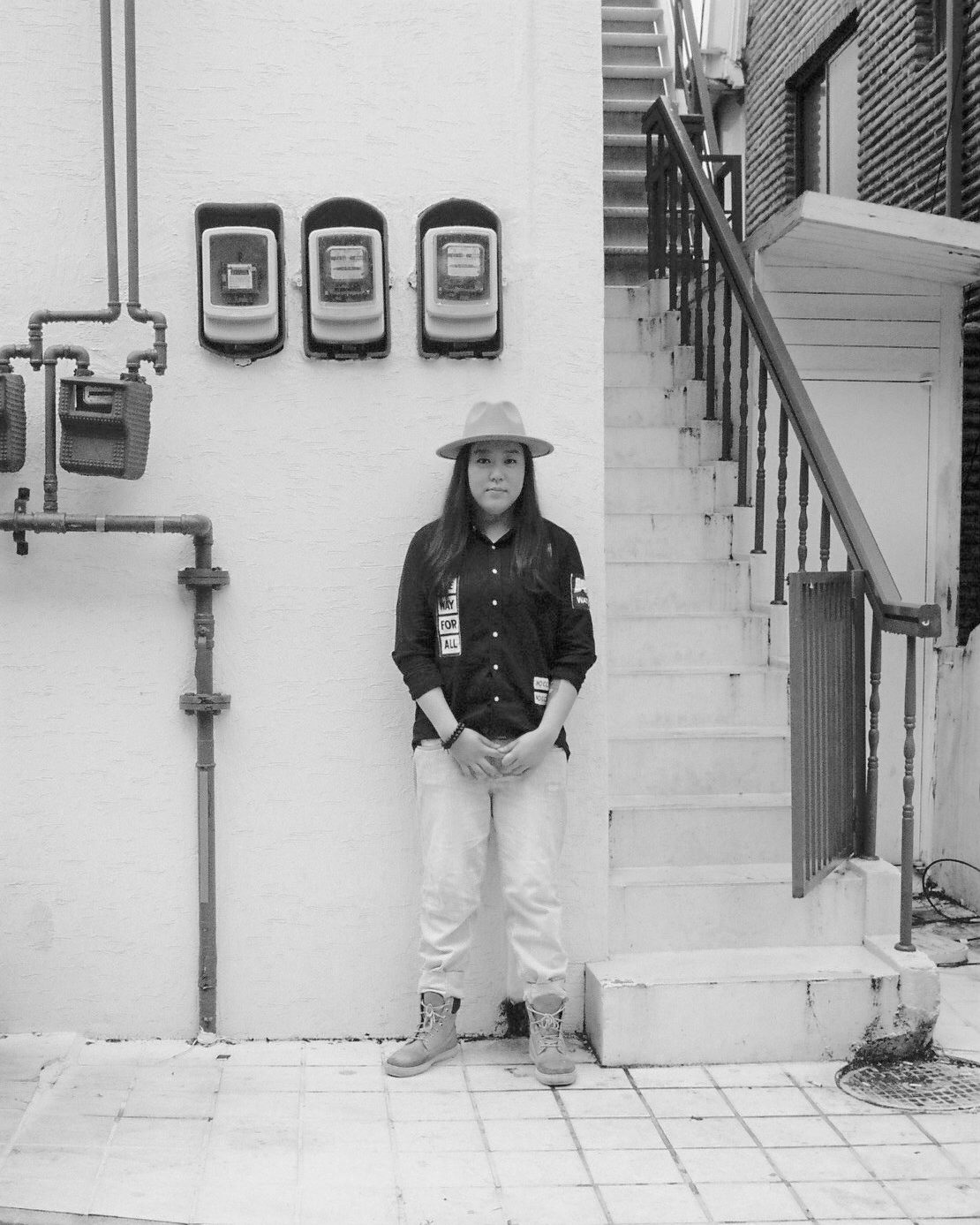
Annie Hong, 28
What do you do?
Painter.
Tell your coming out story:
I was always a huge tomboy that secretly had crushes on girls growing up, but I also grew up very religious and was deeply in the closet. Eventually in college, I left the church and started figuring out life and spirituality for my own. I went to Burning Man when I was 20 and just felt a higher power telling me, “I made you how you are and I love you how you are.” After that I came out to all my friends and eventually my family and finally felt a sense of relief and freedom.
What is it like to be part of the queer community in Seoul?
Luckily there is a supportive community here, but the conservatism and traditionalism of Korea is still very deep-rooted. It’s an exciting time though. It feels like we’re at the roots of a movement of awareness and acceptance of the existence of queer people in Korea.
What are the challenges you face?
I do come across people constantly staring at me or questioning me because I look and behave differently than what’s considered “normal” here. It is also challenging to continuously come out to new people, but I’ve met people in the closet who have been inspired to come out by my visibility and openness. It makes it all worth it.
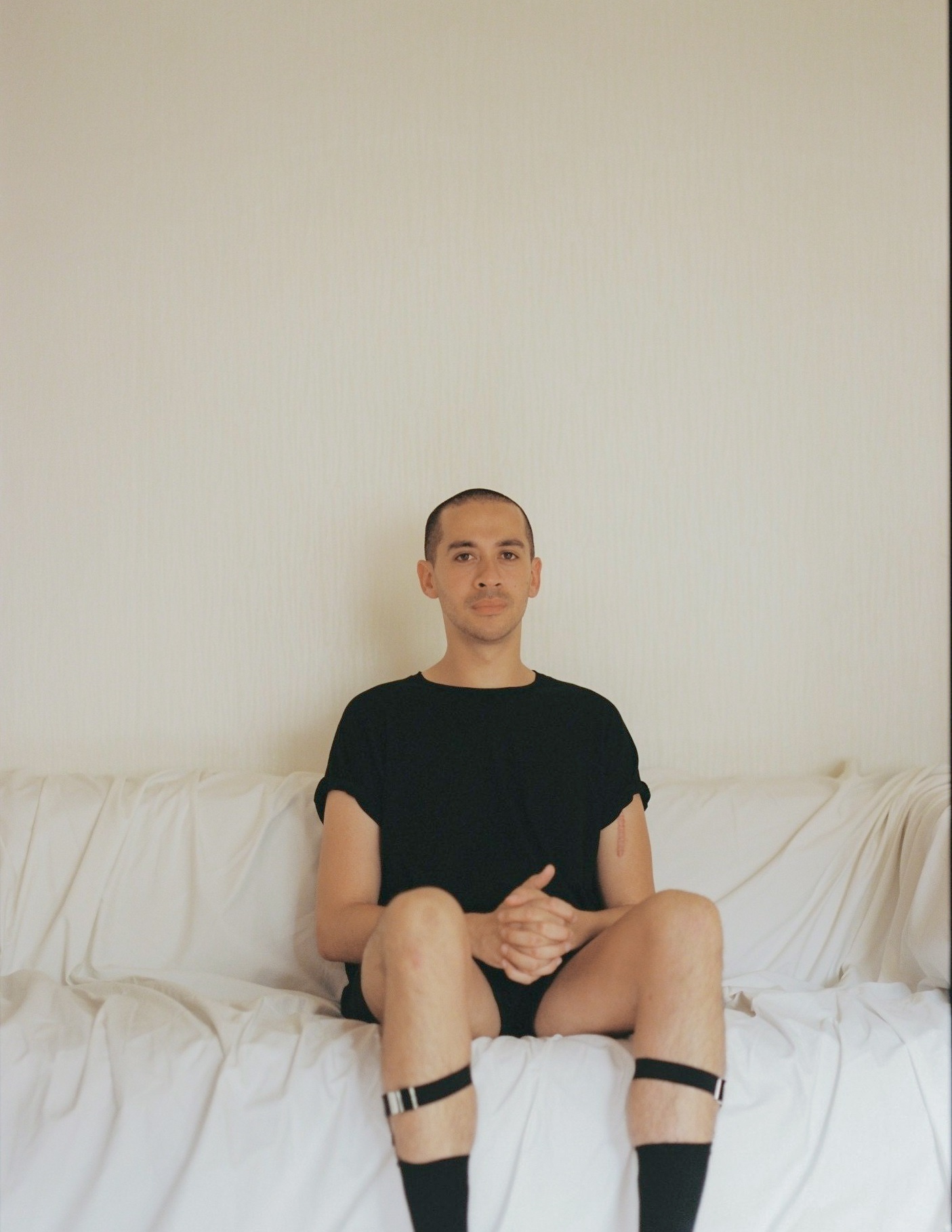
Lindsay Gary Ryklief, 28
What do you do?
DJ, promoter, photographer.
Tell your coming out story:
I was 24 when I came out to my family and friends. Growing up I was always quite androgynous and I was bullied throughout primary and high school for my “feminine” characteristics. People would call me “moffie.” A moffie is South African slang for a guy who dresses and acts like a girl. Every day felt like a struggle and I couldn’t share what I was dealing with. I found myself questioning my existence and coming from a religious family and background I prayed every day just be accepted. Suicidal thoughts, tears and sadness were an everyday thing and I came very close to hanging myself. Being gay was something I never wanted to be. I didn’t want to be frowned upon, I didn’t want to feel unsafe, and I didn’t want my family to feel embarrassed or ashamed. So I suppressed all my feeling towards guys.
After graduation, I moved to South Korea to teach English. This was my first time away from South Africa. Within three months I felt that I could experiment with guys without any judgement and I could explore my sexuality. I felt so tired of pretending and living a lie, it’s a waste of energy and it honestly kept me from from living as my true self. The irony that Korea is actually a very conservative country, but this is where I came out. This is also the country where I met my first boyfriend and he helped me through the process of coming out. After a year of being in Korea I officially came out to my family and friends. The general response went along the lines of, “So what if you’re gay? We love you, no matter what.”
What is it like being part of the queer community?
I love being part of the queer community, which is relatively small in Korea. It’s kinda weird because I was never part of the queer community back home, and now I find myself throwing parties here for the community, trying to expose the Korean community to global queer club culture.
What are the challenges you face?
Most of the challenges stem from the fact that that South Korea is a very conservative country, where LGBTQIA communities and rights are not recognized. You rarely see same sex couples or same sex couples with kids in general public spaces. The older generation does not accept it so it’s very hard for many South Koreans to actually come out or explore their sexuality.
Credits
Photography and interviews Jennifer Cheng
